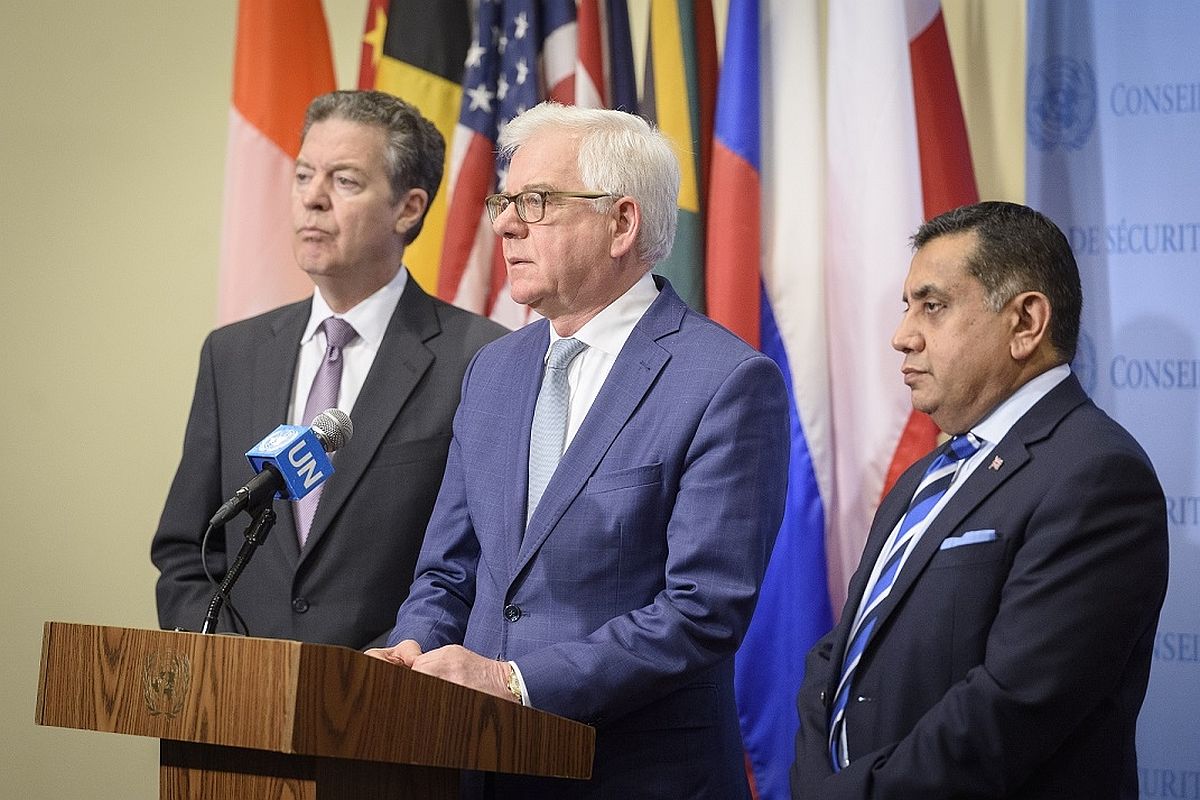In an embarrassing moment for China and Pakistan, the UN meet on Safety of Religious Minorities expressed concern over the discrimination of religious minorities by the two nations.
United States Ambassador-at-Large for International Religious Freedom, Sam Brownback said that in Pakistan, religious minorities continue to suffer from prosecution either at the hands of non-state elements or through discriminatory laws and practices.
Advertisement
The US envoy also expressed concern about the Chinese government escalating widespread and undue restrictions on religious freedom in China.
Washington further urged the Chinese government to respect the human rights and fundamental freedom of everyone in the country.
“Many members of religious groups in China – including ethnic Uyghur, Kazakh and other Muslims, Tibetan Buddhists, Catholics, Protestants, and Falun Gong – face severe persecution and repression, and we call on the Chinese government to end its war on faith and to respect religious freedom for all,” Brownback was quoted as saying by IANS.
He appealed to Muslim countries “to join our calls for better treatment of Muslims and others in China”.
United Kingdom Prime Minister’s Special Envoy on Freedom of Religion or Belief, Tariq Ahmad also slammed both the nations and spoke on UK’s concerns over the condition of China’s Uyghurs and Christians in Pakistan.
“The UK has spoken up for rights of religious communities and minorities across the world, from Uyghurs in China to Christians and Ahmadis in Pakistan,” he said.
“We must unequivocally call out attacks, whether directed at Christians in the middle east and elsewhere… a deepening crackdown on Uyghurs of China and other minorities,” said Canada’s envoy at the UN Meet held in New York.
US, UK, and Canada’s responses came after Naveed Walter, President of Human Rights Focus Pakistan, spoke at the UN meet and said that a large number of people are marginalized in their own societies while referring to China and Pakistan.
He said a growing number of countries are using national security as a pretext for restricted religious expression in public domain.
The leaders were speaking at an informal Council session on the safety and security of religious minorities in conflict that was convened by Poland, which heads the Council this month, and presided over by the country’s Foreign Minister Jacek Czaputowicz.
A delegate of Pakistan defended his country’s treatment of minorities and said that by following the principles of the country’s founder Mohammed Ali Jinnah, his country respected their rights and protected them.
China’s Deputy Permanent Representative Wu Hatao defended his country’s treatment of the Muslim Uyghur minority, which was criticised by western countries.
He said that China was trying to prevent terrorism by only trying to deradicalise and educate them, and 51 countries had written letters of support for its programme.
Meanwhile, India declined to speak on the issue at the UN.
India was listed as a speaker at the informal consultation, but when Poland’s Foreign Minister Jacek Czaputowicz, who was chairing the session, asked India to speak, the member of the Indian Mission who was present, passed up the invitation.
According to the roster of speakers, India was to have followed Pakistan.
Meanwhile, Pakistan Prime Minister Imran Khan will represent his country at the UN General Assembly next month, where he will address the world body on the Kashmir issue.











